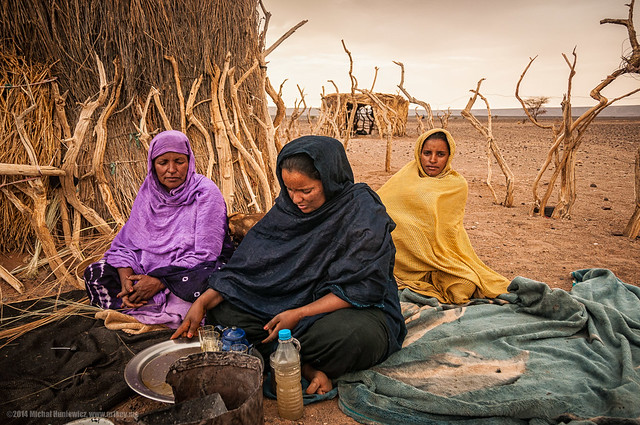Fat Wife Happy Life

Fat Wife Makes A Happy Marriage Life in the African Desert Country of Mauritania
Overweight and Happily Married
Mauritania Traditional Practice of Leblouh
However, the view that a fat girl is more desirable for marriage is seen as old-fashioned in certain regions of the country. What is shaping the perception of beauty? Social media is changing Mauritania traditional standards of beauty in the younger generation.
A study by the Mauritanian ministry of health in 2007 found that force-feeding is dying out. Now only 10 percent of young girls under the age of 19 are force-fed, 32 percent of women and 29 percent of men in Mauritania approved of the traditional practice of gavage or more commonly Leblouh, ie the feeding of aish.

Aish Body Thickener
In Mauritania, there is a cultural practice related to beauty standards called gavage, which means "forced feeding." In this culture, being heavier is often associated with beauty and fertility.
The process begins with women drinking a special mixture made from rich, high-fat camel's milk combined with a local plant called Aish. This mixture is whipped until it becomes creamy and thick. To meet beauty ideals, women may consume a significant amount of this mixture—often around 12 to 14 gallons a day—to gain the weight they desire.
Today, some women also use weight gain supplements for faster results, but the core of this practice is still ingrained in tradition. Overeating is seen not as a problem but as an important part of their cultural identity. This practice highlights a unique view of beauty in Mauritania, where gaining weight is celebrated as an essential aspect of being feminine.
10 Happy Fat Wife Sayings
- Laugh and be fat.
- Laughter fattens the heart, and a full heart sows peace.
- A fat hen lays few eggs.
- A fat yam does not cook well.
- The fat tick weakens the cow; greed starves the hand that feeds.
- Tradition is like fire; it needs both feeding and watching.
- The richest soil attracts the most weeds, but also the most bountiful harvest.
- A thin slice of bread shared is better than a feast fought over.
- Where there is much food, there are many guests.
- A heavy goat gives little milk.
Ten More Happy Fat Wife Quotes
- The fatter the flea, the leaner the dog.
- An empty bowl makes no feast; a hungry mind achieves no wisdom.
- The bigger the cow, the richer the herdsman.
- A wife’s plumpness reflects a household’s wealth.
- The fuller the calabash, the sweeter the feast.
- A wide shadow from a tree shows the strength of its roots.
- Plenty in the home begins with plenty in the heart.
- A plump wife is the drumbeat of her husband’s success.
- A full granary speaks of a good harvest.
- To cherish a wife is to feed her soul and body; her fullness is the laughter of the household.
Mauritania Weight Gain Drink Aish
Ethnic groups in the African Desert Country of Mauritania are Black Moors 40 percent, White Moors 30 percent, Mauritanians non-Arabic speaking, Halpulaar, Soninke, Wolof, and Bamara ethnic groups 30 percent.

More links to articles you will find thought-provoking.
- Where is Shashamane Ethiopia the African Rastafarian Promised Land
- Cooking with shea butter oil
- Worst serial killers recorded in history are women
- Indigenous healers and plants used
- Night running illness or magic
- What is back to Africa




